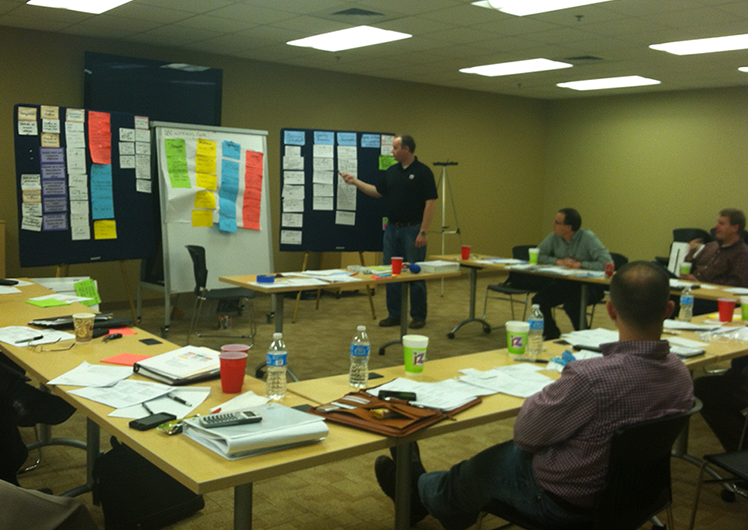The Elephant in the Zoom
 Almost 75 percent of employees in the United States, and close to a third in the Asia–Pacific region, reported symptoms of burnout. All nations reported rising levels of pandemic fatigue. Worldwide – organization wide – employees are tired. McKinsey Quarterly Report January 2021
Almost 75 percent of employees in the United States, and close to a third in the Asia–Pacific region, reported symptoms of burnout. All nations reported rising levels of pandemic fatigue. Worldwide – organization wide – employees are tired. McKinsey Quarterly Report January 2021
Recently I was facilitating some virtual leadership conversations with three groups of high potential managers who worked in different organizations. All the groups had an engaging conversation about the McKinsey report quote, which they tagged the elephant in the Zoom.
Workplace Boundaries
“Covid has taken workplace boundaries away” turned out to be the common thread of our group discussions. Here are a few statements I heard from them:
- Technology has pushed us to bring work into our personal space.
- No safe place – I can’t close my office door in this virtual world.
- I live with continuous interruptions and an expectation for an immediate response.
- I’m working more hours than when I was going into the office.
- It feels like you are “on call,” even on weekends. My manager sends 6:00 AM emails on Saturday and Sundays.
- I feel pressure to be on high alert about what to say, how to say it, all the time.
The Elephant
Another recurring theme was that most of their executive bosses seemed clueless about all of this. No one was talking or asking about this “no boundary” situation people are working in, which was making a difficult time even more depressing. It was interesting to hear that most of the leaders they reported to had not altered their management approach or production expectations to recognize the ever-shifting events over the past eleven months. Not all, but a majority of their bosses were micromanaging them more now than before the pandemic. Not only were these group of mid-level managers tired, but they were also afraid to admit they were tired. The silent treatment or “get over it and get it done,” was a common response they experienced if they were brave enough to request some accommodations to support the boundaryless environment they struggled in every day.
Problem or Predicament
Effective leaders have to be able to discern if the situation is a problem or a predicament. A problem can be solved and put away. A predicament can’t be solved, it can only be minimized, managed or avoided. This group realized that this elephant situation is a predicament and the only thing they could do was come up with a way to better manage themselves and stop hoping their managers would change.
Choose Your Attitude
“The last of the human freedoms: to choose one’s attitude in any given set of circumstances, to choose one’s own way. And there were always be choices to make. Every day, every hour, you are offered the opportunity to make a decision, a decision which determined whether you would or would not submit to those powers which threatened to rob you of your very self, your inner freedom. ― Victor Frankl, Man’s Search For Meaning
Walk Beside the Elephant
Two weeks ago, I was required to have health examination for a new life insurance policy . The exam was outsourced to an independent clinic located in a shopping center. If you’ve ever been to one of these lab centers, you know that it is rare to find a lot of positive people there. Certainly not those in the waiting room waiting to get stuck with a needle and all-to-often the staff doesn’t seem that happy to be there either. But 14 days ago, my experience was totally different, because of nurse Jessica, a middle-aged lady who walked with in the exam room holding the standard packet of syringes and corked test tubes, wearing a big smile. I said, “You sure look happy today,” and she said, “Oh I sure am. I just couldn’t wait to get back here to drawing blood again!” I looked at her funny, then she explained that six weeks ago management had unexpectantly moved her out of her nurse role in this clinic and put her in an administrative area of the company. No discussion, no explanation. One day her boss walked in and told her she had to make this move and she did. She didn’t like the tasks she doing each day and certainly didn’t care much for her task master manager. But she said, “I wasn’t gonna let him get to me, I decided to keep in my mind on knowing I would soon be back doing the one thing I love, working with patients and drawing blood.” She went on, “Deciding to focus on the one thing I loved got me through those weeks of pressure and feeling undervalued.” Nurse Jessica knew that the best way to get through a discouraging predicament, is not to concentrate on changing another person’s attitude, but to focus on the only attitude you can change – your own. .
Journal Entry. Are you tired? Are you afraid to talk about being tired with your manager or others in your life? I certainly hope not. But if you are, or even if you are not, I like to offer a simple action to help you be prepared for the predicaments that will come your way. First, fill in this blank, “I just can’t wait to get back to doing_______.” In the blank list one or two life-giving actions that always give you energy when you do them. Now, intentionally build in time the next three week to do those things and keep a record when you do. Both Victor and Jessica reminded us that we can decide to either walk beside our elephant or struggle against it. Which strategy will you choose as you move along the path to success in your leadership in life?
Leadership and Life Journal: A new way to look at the important things you already know. Subscribe to Leadership & Life Journal.



